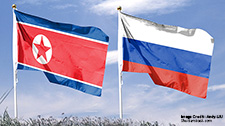Security in the Asia-Pacific: Japan’s Options Amid U.S.-Chinese Tensions

Lars Vargö and Gabor Fabian
Abstract
The first arms control conference in history was held in Washington D.C. a hundred years ago. The Washington Naval Conference focused on the naval capabilities of major actors in the Pacific Ocean and resulted in the Washington Naval Treaty. Signed into law in 1922 by the United States, United Kingdom, France, Italy, and Japan, the treaty limited the construction of new warships and bases in the Pacific. However, within a decade and a half, the treaty had fallen apart as the world hurtled toward a new great war. While East Asia has fundamentally changed over the course of the last century, international treaties continue to play a vital role in maintaining peace and security. For Japan, crafting an effective regional engagement, particularly against the backdrop of heightened tensions between the U.S. and China, means renewing and reaffirming existing partnerships in East Asia and beyond.
Related Publications
-
Needed, a Framework to Protect Undersea Cables
In the data-driven world we live in, submarine cables are the arteries that connect nation-states and their people in literally every human activity, including trade, commerce, entertainment, and social interactions. […]
-
The Political Split at the Heart of Taiwan’s Struggle against Foreign Disinformation
Taiwan’s struggle against foreign disinformation and concerns about China’s impact on its 2024 election has received much international attention recently. This issue brief examines the domestic and international politics behind […]
-
Sino-Russian Relations, From Where – To Where
Since 1949, relations between the Soviet Union/Russia and China have been oscillating between formal military alliances and military border clashes. In the early phases, the cooperation was beneficial for both […]
-
What Comes Next for North Korea-Russia Relations?
North Korea and Russia have taken their relations to a new level after the leaders of the two countries held an in-person summit meeting on Wednesday. While Pyongyang and Moscow […]
-
South Korea’s Indo-Pacific Strategy, Atmanirbhar Bharat, and the IPEF: Convergence and Commonality
For some time now, the existing multilateral networks such as those of the United Nations (UN) system have been largely ineffective in providing good global governance and helping create resilience, […]




